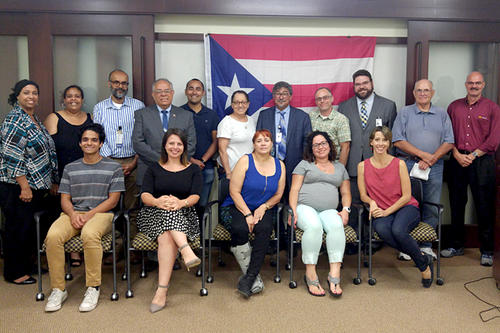
Studies indicate that 30-40 percent of people who survive a natural disaster will develop PTSD (post-traumatic stress disorder). In Puerto Rico, that translates to close to a million people who have struggled with PTSD since Hurricane Maria raked the island in September 2017.
In the wake of the hurricane, a group of University of Minnesota Medical School physicians, students, and staff have organized efforts to help Puerto Rico, including several mission trips to provide supplies and medical expertise.
Ten months after the devastating storm, the group took their fourth trip, this time focusing on the mental health issues Puerto Rico’s citizens still must grapple with. The team of five Medical School psychiatric and medical faculty, plus a group of medical students, visited affected homes and facilities damaged by Maria, as well as attended and presented their experience in a local symposium.
When they flew in, a hurricane seemed to be brewing. Though the storm dissipated, the team noted how everyone around them responded by swiftly emptying shelves in stores and otherwise bracing for another disaster. That was one indication that major health issues remained. Another was an apparent jump in suicides.
But the team also learned that what they brought in terms of education and tactics was needed and appreciated. Now, with funding from an American Psychiatric Association Helping Hands Grant, team members plan to use focus groups, talks with high school teachers, and mental health surveys to learn how people have processed trauma, stress, and grief after the hurricane, including how culture and language influenced their responses.
“Based on the information we glean from this, we hope to develop a structured intervention to help the people of Puerto Rico deal with the stress of natural disasters,” says Adnan Ahmed, an assistant professor of psychiatry who oversees the group.
- Categories:
- Health




